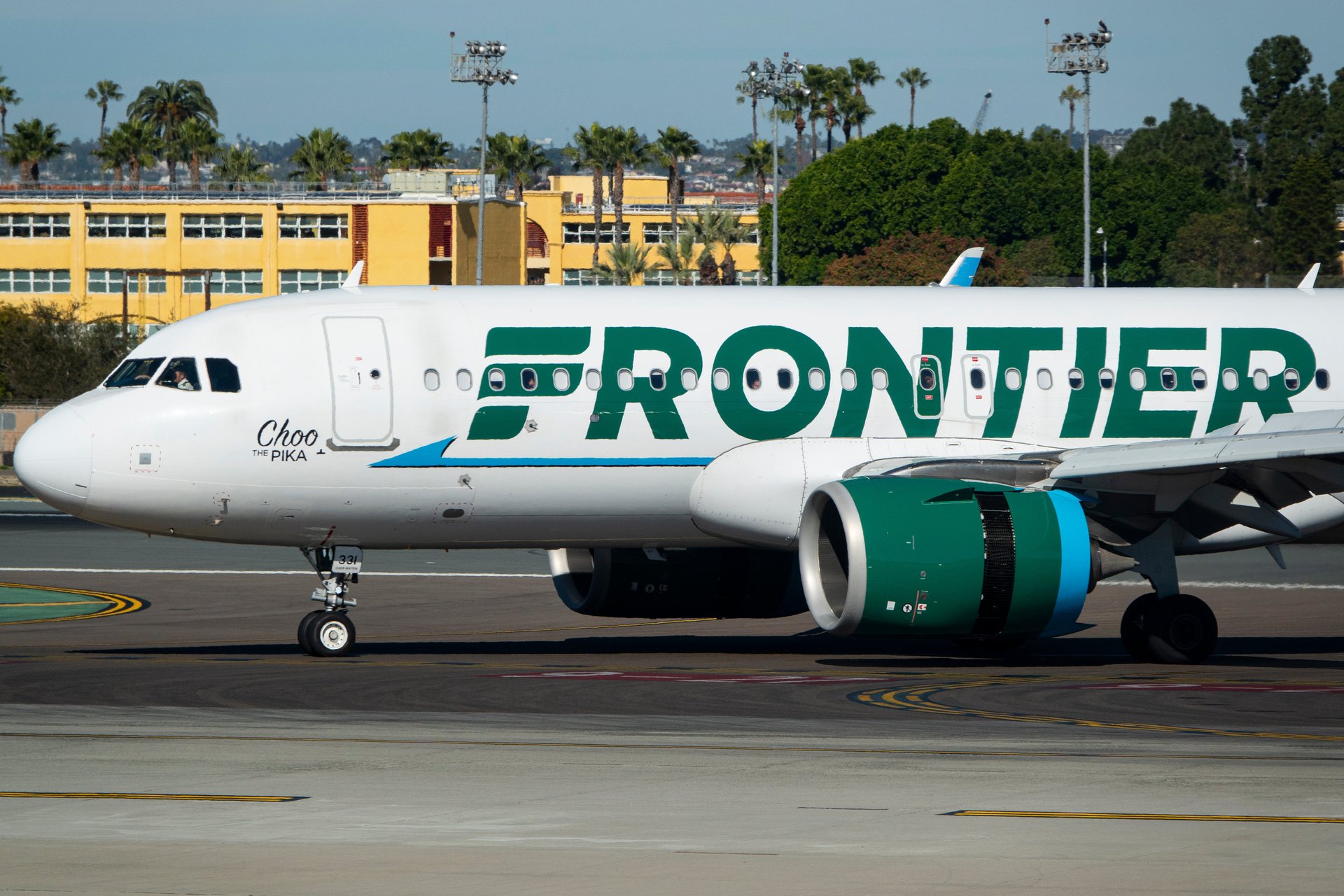Frontier Airlines just ended fees for changing and canceling flights
The airline industry has faced growing pressure from the U.S. government to improve its pricing transparency

As the United States government cracks down on junk fees and predatory practices in the airline industry, Frontier Airlines has introduced a series of changes geared towards pricing transparency.
Suggested Reading
The Denver-based airline announced Friday that it will no longer charge fees for flight changes or cancellations, and will clearly present its four travel class options — Basic, Economy, Premium, and Business — including the benefits associated with each, upfront. The low-cost airline also extended the validity of flight credits issued to passengers on or after May 17 to 12 months, up from 3.
Related Content
“Today marks the beginning of a new era for Frontier - one with transparency in our prices, no change fees and the lowest total price,” Frontier CEO Barry Biffle said in a statement.
With a basic fare, Frontier passengers previously had to pay $99 to change flights within six days of departure. During the pandemic, major airlines including American Airlines, Delta Air Lines, and United Airlines permanently did away with change fees on standard economy and premium cabin tickets.
Frontier has recently rolled out new (paid) perks to make its flights more comfortable. In March, the company said it would begin offering open middle seats, giving customers more legroom and elbow space.
New U.S. Department of Transportation rules announced last month will require airlines to notify consumers upfront about fees for checked and carry-on bags, along with costs for reservation changes or cancellations. The agency estimated that consumers will save more than $500 million each year that they currently pay in airline fees.
The move formed part of the Biden administration’s crackdown on sneaky fees that often cost consumers. In October, the White House announced a new proposed rule to prohibit so-called “junk fees” — hidden and misleading fees — and require companies to show full prices upfront. The Federal Trade Commission estimates that junk fees cost American consumers tens of billions of dollars each year in unexpected costs.
Industry trade group Airlines for America, alongside a coalition of major U.S. airlines, including American, Delta, United, JetBlue, Alaska and Hawaiian, filed a lawsuit last week against the Transportation Department in an effort to overturn the rule.
U.S. Secretary of Transportation Pete Buttigieg said in a post on X that he was “speechless” that airlines were suing to block a new rule meant to provide more transparency for passengers.
